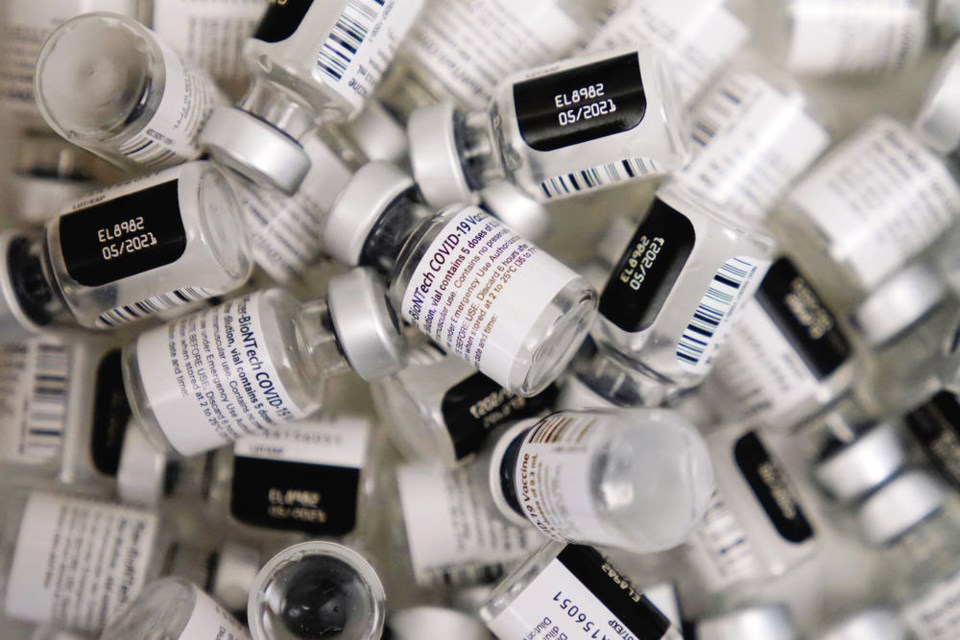When Laurie Mouat was six years old, he would drive his father, Gilbert, to work.
There was no other choice, really, not after polio left Gilbert in a wheelchair. That was in 1915 when Gilbert was still in his twenties, a few years after he and his mother launched the Salt Spring Island business that still bears the Mouat name.
Vonnie Bryant, Laurie’s daughter, still laughs at the story of her father, legs too short to reach the pedals, driving Gilbert to the store. She also remembers the rope-and-ramp system her grandfather used to haul his wheelchair up to his second-storey office. She recalls his sons lifting him into a boat so that he could go fishing.
She also remembers how grateful she was when the polio vaccine arrived in the mid-1950s, a miracle that freed Canadian children from the fear that they or their friends would be crippled. “We were all so happy to see it,” she says from her Salt Spring home.
Her husband, Andy Bryant, has similar memories. Each summer when he was a boy, there was a worry that polio would come through and pick off someone you knew. It hit the third baseman on his Duncan baseball team. So, yes, people were thrilled to get the vaccine. “There wasn’t any hesitancy,” he says.
Polio reached its peak in 1953 when it struck 9,000 Canadians, killing 500 of them. Then the vaccine arrived and numbers soon plunged. The fear was gone.
The polio experience is often waved as a terrific real-life example of what can happen when there’s mass buy-in for a vaccine, the same kind of collective response needed before COVID-related restrictions can be eased.
And sure enough, most people say they’re on board, according to an Angus Reid Institute survey released this week. The pollster found a whopping 89 per cent of British Columbians were willing to get a vaccine. Just 11 per cent would refuse their shots or weren’t sure about getting them, a big drop from 24 per cent at the end of January.
So why, then, have so many British Columbians been so slow to register for their jabs?
With all adults now eligible for their shots (and, now, 12- to 17-year-olds, too) there’s a yawning gap between the number of people who — at least according to the Angus Reid poll — have said they’re willing to get the vaccine and those who have actually signed up to do so.
As it stands, the number who have received a shot has almost caught up to the number who have asked for one. As of Thursday, 2.55 million British Columbians had received a first jab while 2.77 million had registered. The latter figure is a big jump from two million just two weeks ago, but it’s still only 64 per cent of the 4.3 million adults eligible.
It’s puzzling that after all we’ve been through, fewer than two-thirds have stepped up. It’s not just a case of word of eligibility not having filtered down to young people, either. Some of the weakest registration numbers are among the middle-aged. Are people frightened? Not worried about others? Do they just need a nudge off the couch? “My message this weekend is register, register, register, then book, book, book,” Health Minister Adrian Dix urged Thursday.
Which, in context, was like hearing someone exhort a starving man to eat. You would hope that after a year and a half of disease, death, lockdowns, masks, hand sanitizer, six feet apart, shelter-in-place, licence plate vigilantes, Zoom, one-way grocery store aisles and no-way-you’re-going-to-Mexico, people would be clamouring to be part of the solution.
Alas, that’s not always the case. Some jurisdictions are having to go to ridiculous lengths to persuade people to do the right thing. Ohio has a $1 million lottery for those who have had a first shot. New Orleans promoted an event at which those getting vaccinated were rewarded with a pound of boiled crawfish. Alabama offered a chance to drive on Talladega Superspeedway. In Lethbridge, Alta., university students can win free tuition. Just to the south of us in Washington state, which has a population 1.5 times larger than sa���ʴ�ý’s but a COVID death count 3.5 times higher than ours, businesses are offering Seattle residents free beer and cheeseburgers when they get shots.
Really, that’s what it takes to motivate us? It’s one thing to say “I won’t get a shot because I’m legitimately terrified.” It’s another to say “I’m hesitant enough that I’m willing to risk infecting everyone you love, but not so worried that I won’t change my mind for a free beer.”
Imagine if they had taken that attitude with polio.
> Online: gov.bc.ca/getvaccinated; phone: 1-833-838-2323
